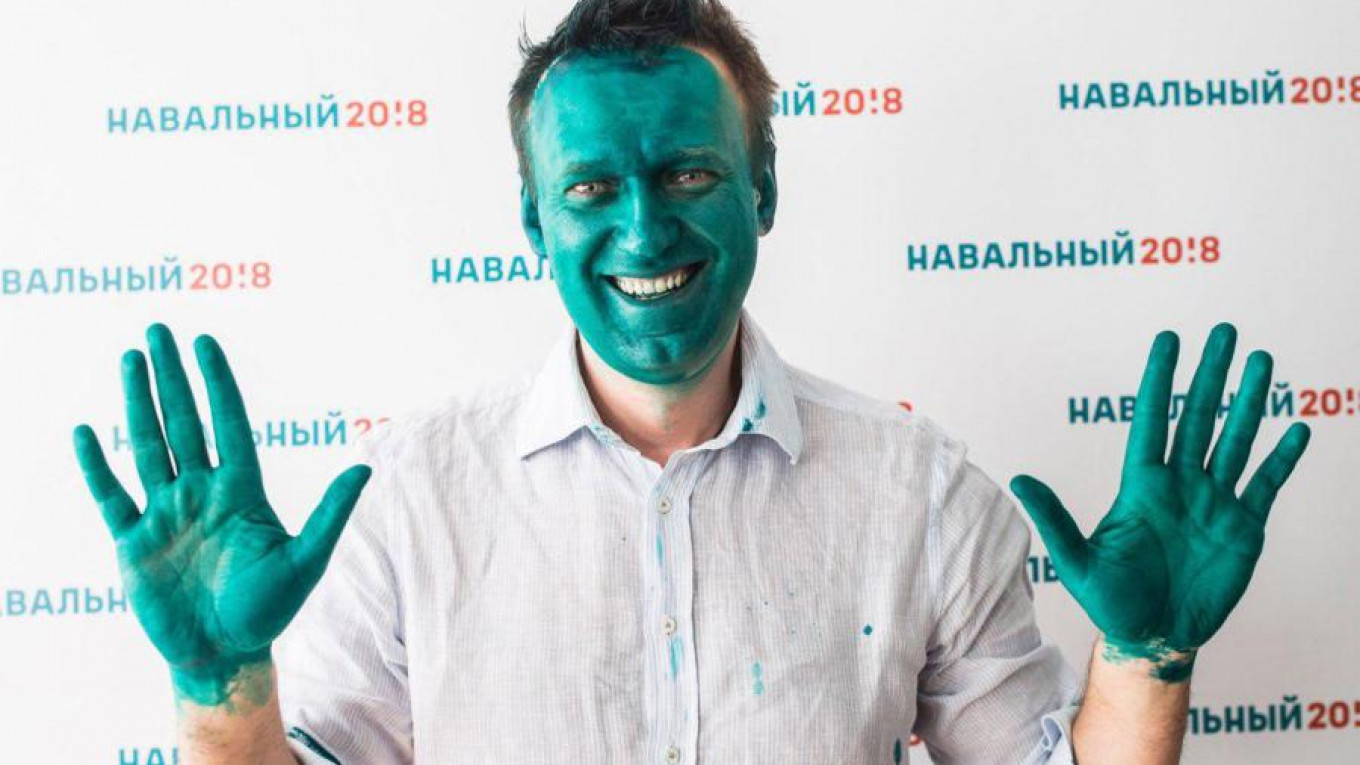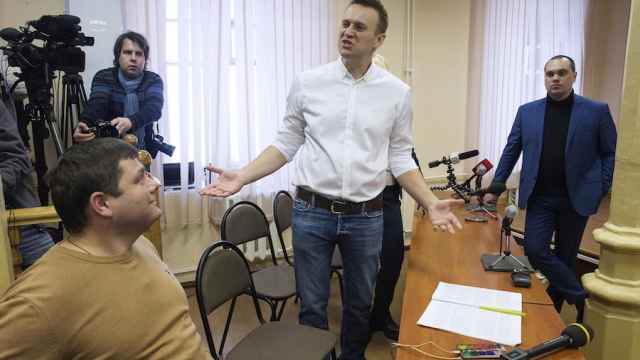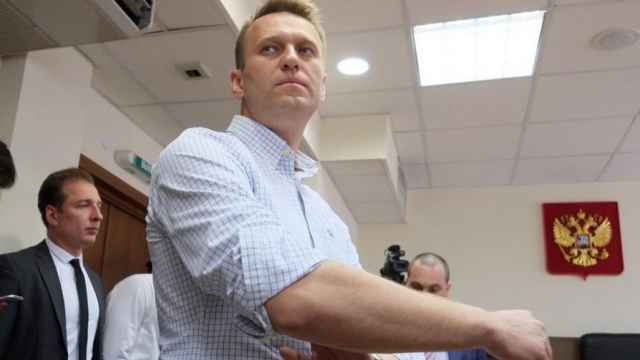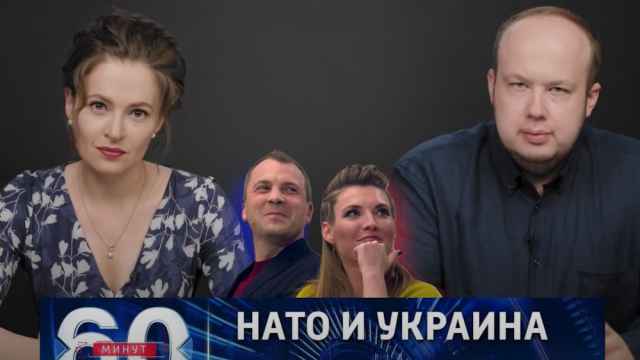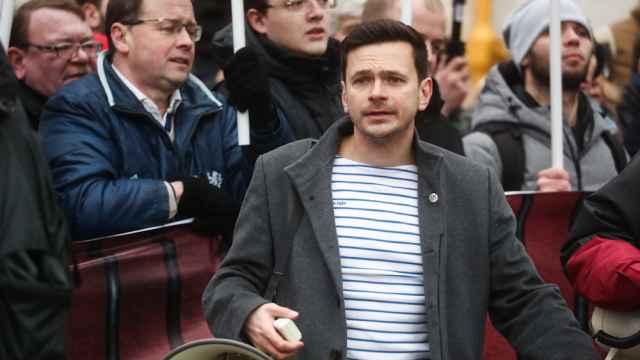Opposition politician and staunch Putin critic Alexei Navalny was doused in bright green dye during a campaign event in the eastern Russian town of Barnaul Monday morning.
Photos taken by a news reporter show Navalny covered with the green dye, a common antiseptic sold for a fraction of a U.S. dollar at pharmacies throughout Russia.
“It’s either Avatar, or the Mask, or Shrek,” Navalny commented jokingly on his blog after the incident. “This is a strange presumption on the Kremlin's part: if they pour Brilliant Green over me, I will stop campaigning and organizing rallies."
The dye, known as Brilliant Green, is often used to attack members of Russian opposition and political activists.
Across the spectrum of Russia’s political opposition, Navalny is widely viewed as the most potent challenger to Vladimir Putin.
Although he has been able to dramatize the predictable presidential campaign of 2018, he has been barred from running after being re-convicted for fraud and receiving a five-year suspended sentence.
But Navalny claims he still has his constitutional right to run for the presidency and has continued his campaign.
Navalny’s anti-corruption organization recently published an investigation, which accused Russian prime-minister Dmitry Medvedev of being a beneficiary and owner of expensive property across Russia. By Monday, March, 10, the film had received a record-breaking 10 million hits on YouTube.
In cities through Russia, the headquarters of Navalny’s campaign have come under attack. His campaigners’ cars are often covered with paint and their tires slashed.
Navalny is planning mass protests across Russia on March 26 against corruption. He says that his supporters have requested permission to rally on that day in more than 50 cities.
A Message from The Moscow Times:
Dear readers,
We are facing unprecedented challenges. Russia's Prosecutor General's Office has designated The Moscow Times as an "undesirable" organization, criminalizing our work and putting our staff at risk of prosecution. This follows our earlier unjust labeling as a "foreign agent."
These actions are direct attempts to silence independent journalism in Russia. The authorities claim our work "discredits the decisions of the Russian leadership." We see things differently: we strive to provide accurate, unbiased reporting on Russia.
We, the journalists of The Moscow Times, refuse to be silenced. But to continue our work, we need your help.
Your support, no matter how small, makes a world of difference. If you can, please support us monthly starting from just $2. It's quick to set up, and every contribution makes a significant impact.
By supporting The Moscow Times, you're defending open, independent journalism in the face of repression. Thank you for standing with us.
Remind me later.


